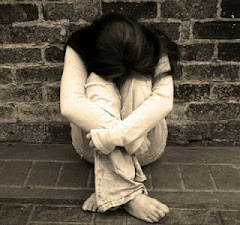Breast Cancer is a disease that not only breaks down a woman emotionally but also physically and financially.
Risk Factors
Just being a woman is the biggest risk factor for developing breast cancer. There are about 190,000 new cases of invasive breast cancer and 60,000 cases of non-invasive breast cancer this year in Indian women.
2)Age
As with many other diseases, your risk of breast cancer goes up as you get older. About two out of three invasive breast cancers are found in women 55 or older.
3)Family History
Women with close relatives who've been diagnosed with breast cancer have a higher risk of developing the disease. If you've had one first-degree female relative (sister, mother, daughter) diagnosed with breast cancer, your risk is doubled.
4)Genetics
About 5% to 10% of breast cancers are thought to be hereditary, caused by abnormal genes passed from parent to child.
5)Personal History of Breast Cancer
If you've been diagnosed with breast cancer, you're 3 to 4 times more likely to develop a new cancer in the other breast or a different part of the same breast. This risk is different from the risk of the original cancer coming back (called risk of recurrence).
6)Certain Breast Changes
If you've been diagnosed with certain benign (not cancer) breast conditions, you may have a higher risk of breast cancer. There are several types of benign breast conditions that affect breast cancer risk
7)Race/Ethnicity
White women are slightly more likely to develop breast cancer than African American, Hispanic, and Asian women. But African American women are more likely to develop more aggressive, more advanced-stage breast cancer that is diagnosed at a young age.
8)Being Overweight
Overweight and obese women have a higher risk of being diagnosed with breast cancer compared to women who maintain a healthy weight, especially after menopause. Being overweight also can increase the risk of the breast cancer coming back (recurrence) in women who have had the disease.
9)Pregnancy History
Women who haven’t had a full-term pregnancy or have their first child after age 30 have a higher risk of breast cancer compared to women who gave birth before age 30.
10)Breastfeeding History
Breastfeeding can lower breast cancer risk, especially if a woman breastfeeds for longer than 1 year.
11)Menstrual History
Women who started menstruating (having periods) younger than age 12 have a higher risk of breast cancer later in life. The same is true for women who go through menopause when they're older than 55.
12)Using HRT (Hormone Replacement Therapy)
Current or recent past users of HRT have a higher risk of being diagnosed with breast cancer. Since 2002 when research linked HRT and risk, the number of women taking HRT has dropped dramatically.
13)Drinking Alcohol
Research consistently shows that drinking alcoholic beverages -- beer, wine, and liquor -- increases a woman's risk of hormone-receptor-positive breast cancer.
14)Having Dense Breasts
Research has shown that dense breasts can be 6 times more likely to develop cancer and can make it harder for mammograms to detect breast cancer.
15)Lack of Exercise
Research shows a link between exercising regularly at a moderate or intense level for 4 to 7 hours per week and a lower risk of breast cancer
16)Smoking
Smoking causes a number of diseases and is linked to a higher risk of breast cancer in younger, premenopausal women. Research also has shown that there may be link between very heavy second-hand smoke exposure and breast cancer risk in postmenopausal women.
Emerging Risks:
Low of Vitamin D Levels
Research suggests that women with low levels of vitamin D have a higher risk of breast cancer. Vitamin D may play a role in controlling normal breast cell growth and may be able to stop breast cancer cells from growing.
Eating Unhealthy Food
Diet is thought to be at least partly responsible for about 30% to 40% of all cancers. No food or diet can prevent you from getting breast cancer. But some foods can make your body the healthiest it can be, boost your immune system, and help keep your risk for breast cancer as low as possible.
Avoid the avoidable and save yourself!!
sent to us by
Dr Priya Chabbria (India)

























